Ata-ul-Haye Nasir, Al Hakam
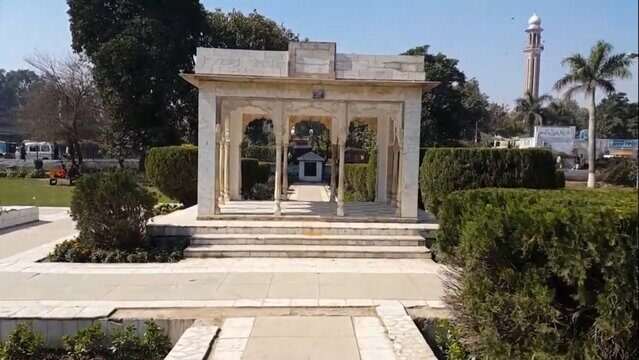
In 1949, Malik Sahib Khan Sahib Noon, retired Deputy Commissioner requested Hazrat Musleh-e-Maudra to visit Sargodha and address the locals, which was accepted by Huzoorra, and thus, he delivered a lecture on 11 November 1949 at the Company Bagh.
The lecture was delivered after the Jumuah Prayer and lasted for two hours. It was attended by hundreds of people from all walks of life, including the district officials, local dignitaries and many non-Ahmadis. (Al Fazl, 13 November 1949, p. 1)
During this lecture, Huzoorra gave in-depth guidance to the government and the people of Pakistan, suggesting how the newly-formed Pakistan could be led to progress and stability.
In the beginning, Huzoorra stated:
“I believe the main difference between human beings and animals is that human beings contemplate, but animals do not. Animals have been living the same way since the world’s beginning, but human beings have invented new ways through continuous contemplation. And whenever human beings have abandoned this prescribed path, they have faced downfall, instead of advancement.
“The main point on which we need to emphasise and pay attention is that we should not leave our habit of contemplation – which has been declared necessary for our progress by Allah the Almighty. If we choose a path for ourselves without any thought, then certainly we will never progress, instead, we will stand still at the same place. And this is a law of nature that whoever stands still, regresses and cannot sustain their position.
“Allah the Almighty has created this world in such a way that human beings would either progress or regress, there is no place where they could standstill. Glance into the world’s history ever since the history of mankind is known – and we learn about the world’s history from the Holy Quran, as it has narrated the history since the time of Adamas – it seems that people either progress or regress; human beings have not been granted the power to remain in the same state. Thus, there is no point in being motionless; without change.
“And to progress, we must understand our objective, and we need to have enough capability to create a path [towards progress] after pondering over all aspects. Therefore, to progress, we need to make a habit of contemplating, reflecting and acting with thought. And then we need to try to act on those beneficial matters which we learn after enough contemplation.
“If we do so, we would make ourselves beneficial and benefit from our lives in true spirit. But if we do not contemplate and reflect, or do not try to act upon those beneficial matters which we learn after much thought and contemplation, then we forget the purpose of our life and tread on such a path which leads a person towards ruin and destruction, instead of success and progress.” (Al Fazl, 28 November 1962, p. 2)
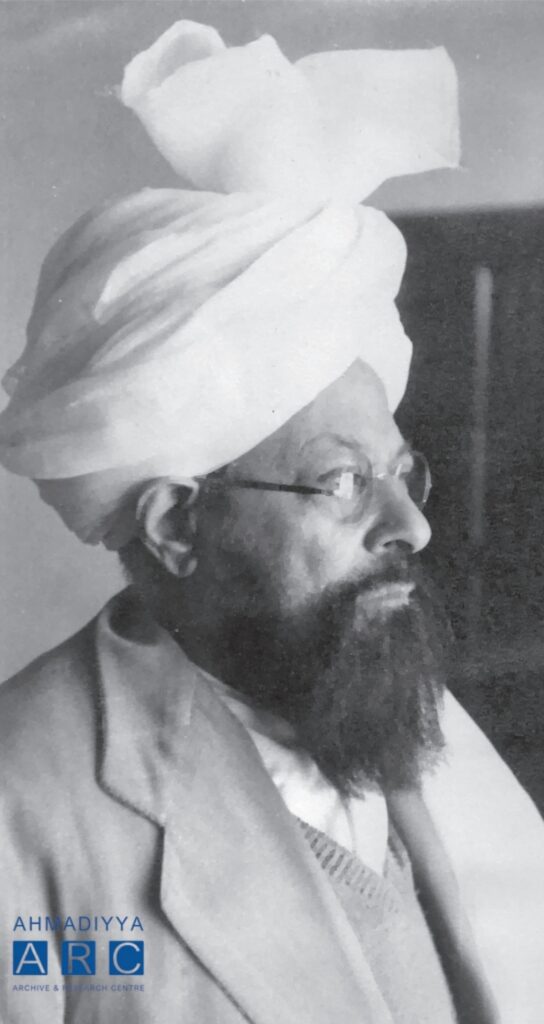
Huzoorra further said:
“You had demanded Pakistan and, by the grace of Allah the Almighty, you have got it now. […] Pakistan – which has been given to you by God Almighty – is an inanimate thing, but you are animate; you can speak, understand, walk, pick up or pull something, but Pakistan does neither speak nor contemplate or understand. […] And it is a law of this world that it is the animate things which always protect the inanimate things. […]
“Therefore, you will have to protect Pakistan, instead of Pakistan protecting you. […] If you do not take care of Pakistan, it will be spoiled. […] Thus, you all need to understand that you demanded Pakistan and eventually got it, but when you had demanded it, did you not know the fact that in case you get it, you would have to take care of it?
“When a mother prays to Allah the Almighty for a child, and says ‘O God, grant me a child by your grace’, she also understands that she would need to stay awake during the nights for [taking care of] the child. […] You are [just like] the mothers of Pakistan, and Pakistan is [like] a child which has been granted to you by God Almighty. […] Now, only you hold the responsibility for the advancement of knowledge, trade and industry, the religious and moral state of the people, and good governance in the country.” (Ibid, pp. 2-3)
Huzoorra continued:
“The nature of sacrifices required from the people of a well-established country is far different from the sacrifices required from the people of a country which has a newborn government. And such a newborn government is just like a plant without firm roots. […] Thus, there is a huge difference between the government of Pakistan and the American, French, English, Russian and German governments, and that difference is that Pakistan is an infant and they are mature. The rules vary for the mature and the infants. A mother does not have to stay awake the whole night for a young child, but she does stay awake for an infant. […]
“Therefore, until you recognise the responsibilities which are incumbent upon you towards Pakistan, you can never satisfy your heart by some similarities that such and such happens in America, England, France, Germany, and Russia as well. I get surprised whenever I read such articles in newspapers that such and such happens in America, England and France. Why don’t they [the authors] understand that those countries are like a 40-year-old strong man and Pakistan is still [like] an infant? Anyway, a Pakistani will need to offer sacrifices differently, if they wish to retain their country. […]
“This is an obvious fact that governments function with money, but when Pakistan was established, there was lawlessness [during the early days]. When I came from Eastern Punjab [Indian Punjab], some high officers of the railway met me and told me that the state of Muslims is such that they forcefully aboard the train without a ticket and say that ‘Now that the British have gone and we have our own government, why should we buy a ticket?’ We indeed have our government, but the question is, does one ought to protect their own possession with more care or less? […]
“If [you claim that] Pakistan belongs to you, then you will need to offer sacrifices for its strength. You cannot get away from those sacrifices by saying that ‘this is our belonging, so it is our right to keep it in whatever way we like’; rather, ‘our belonging’ implies that you will have to offer sacrifices more than others.” (Ibid, p. 4)
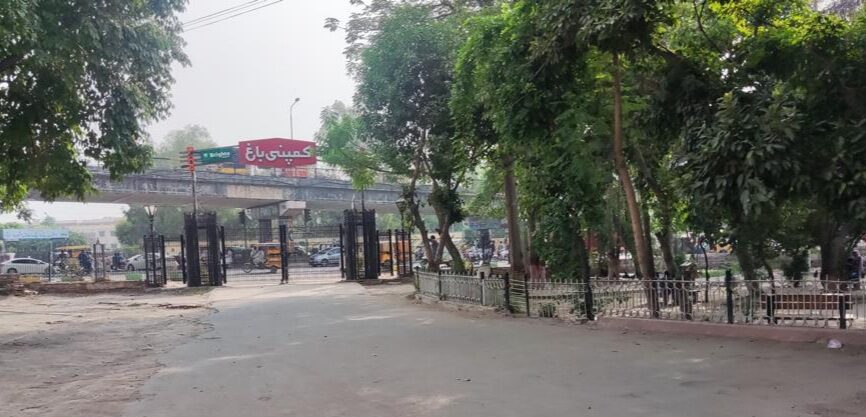
After this, Huzoorra advised the people of Pakistan to pay all of their due taxes with complete sincerity, which would ultimately be used for the betterment of the country. He said:
“[Sargodha] is a district of landowners and they cannot evade their tax because the government knows about the amount of land and earnings of a certain landowner. A government employee also cannot get away, as the government is paying them and knows how much they earn. But, other people continuously evade their taxes.
“During British rule, one could have argued, ‘Why should I pay my money to the British rulers?’, but now Pakistan is [like] your own child and you must offer sacrifices for your ‘child’ and would necessarily have to spend your money. If there will be no money [through taxes], then how could the armed forces be sustained, and how could the government carry out its responsibilities.
“But even though they have their own government and one ought to offer more sacrifices for their own possession, traders are still committing the same fraud which they used to do in the past. For instance, I have noticed that there are very few traders who put sales tax [on their items] and sell their items at very high prices, by not implementing the sales tax [on the buyer]. […]
“In short, this is the method of traders that on one hand, please the buyer by not putting the sales tax in the count, and selling the item at a high price as well. The government had estimated the annual income through sales tax to be between 70 to 100 million rupees, but the previous year’s total income through sales tax was 25 million rupees. In other words, around 70 to 80 million rupees were evaded by traders.” (Ibid, pp. 4-5)
While addressing the youth, Huzoorra said:
“Intellectual advancement happens through colleges and schools, but I observe that still, our youngsters are spending their time in unnecessary games and vices. […] Pakistan can attain respect only when it achieves such a status that all nations of the world feel compelled to pay their respect. And this cannot happen until every school student commits that they will make every effort and study with full passion to achieve such a position where the world starts seeing them with jealousy. Similarly, it cannot happen until every college student makes the same effort and strives hard to succeed in their education.
“But the situation is such that instead of enhancing their educational level, the youngsters go to the cinemas, sing unethical songs and waste their money on other vices. […] Pakistan cannot attain any respect until our youth are on par with the youth of other nations. Until our youth surpass others in all kinds of disciplines, they cannot lead them at all. This responsibility is completely in the hands of the youth. […] Always remember that independence does not mean merely a government; rather it means to instil such reformations in oneself which strengthen the country. […] If you do not advance your country in every aspect, then this independence will merely be a toy.” (Ibid, p. 5)
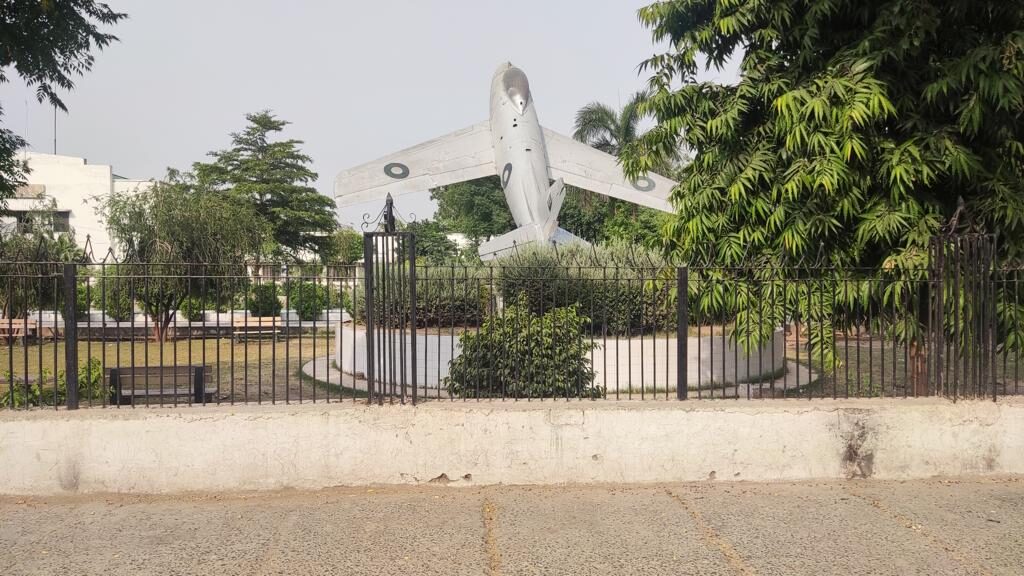
Huzoorra continued by saying:
“Pakistan cannot be strengthened without practical sacrifices. […] We had demanded independence and a sovereign country for our progress – and Allah the Almighty granted it to us – so now we need to offer sacrifices practically. And practical sacrifices include hard work, selflessness and honesty.
“The authorities need to leave the habit of taking bribes and need to purify their character. Though it was a bad habit earlier as well, now it is a curse from the national perspective, and it needs to be eradicated as soon as possible. Similarly, they must make the public act on their commands with love and tenderness, instead of force and might. It is a big mistake to neglect the valid rights of the nation and govern them with force due to power hunger.
“Therefore, the public needs to pay all their taxes, the youth needs to exert their full effort in attaining knowledge, the governmental authorities need to ensure that even a thought of taking bribes should not come to their mind, and every person who goes to an officer, should return with the belief and certainty that the government has brought such a revolution in the country, that though the government officials used to take bribes in the past, now they refrain from it.
“Just imagine, if our country starts acting upon these three points, it will bring a huge revolution; that is, every one of you pays their taxes, traders pay their income tax, professionals pay their sales tax with sincerity, landowners pay their tax, no one travels on the railway without a ticket, government officials refrain from taking bribes and every shopkeeper and trader advise each other not to evade their sales tax – then Pakistan’s income would increase abundantly. Currently, Pakistan’s annual income is 800 million rupees, but if all people start paying their taxes with sincerity, then this income could reach 1.5 billion [rupees].” (Al Fazl, 5 December 1962, p. 2)
After this, Huzoorra spoke about the ongoing demand for an Islamic constitution in Pakistan and stated that Pakistani Muslims needed to inculcate Islamic teachings in their hearts, before making such a demand.
Huzoorra said:
“There are around 900 commandments in the Holy Quran, from which perhaps two or three commandments are such in which a government can be involved; the rest are directly related to individuals and they can act on them without any hindrance, if they are willing to do so.
“Therefore, one is amazed on seeing the uproar in newspapers that an Islamic government should be established [in Pakistan]. Even during British rule, there was no hindrance in acting on these commandments and now there is freedom in every aspect. [During British rule] one could think that people are showing negligence in acting on the Islamic commandments due to the influence of English people, but now they have left. So, what kind of hindrance is there for us in acting on these commandments and what halts us? If there is no hindrance, then what does this uproar for establishing an Islamic government mean?
“There can be only two possibilities about this uproar which is being raised in the newspapers; either it is a demand of the whole country or it is not. […] If a majority of the country demands to implement the Islamic law, then the question arises; are they acting on Islam [at an individual level]?
“[…] Whenever one picks up a newspaper, it says that ‘the state of Pakistan is doing nothing to establish an Islamic government.’ […] Who stops you from offering prayer, observing fasts or going for Hajj? [The reality is that] you are not doing the acts which are completely in your own control, but blaming the government instead.” (Ibid, pp. 3-4)
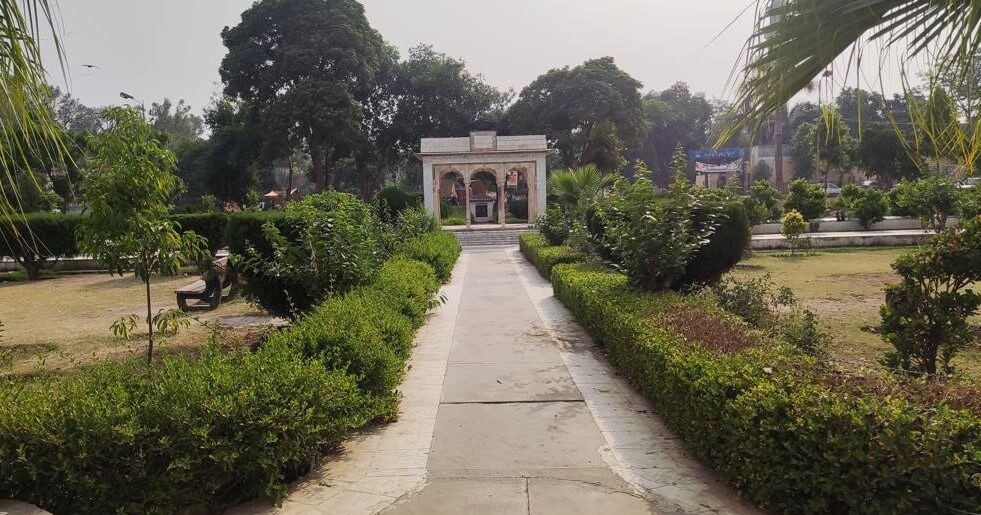
Towards the end, Huzoorra said:
“Merely raising slogans does not indicate a nation’s progress. […] But if all people start acting on those matters which I have mentioned here [during the lecture] – traders start paying their taxes, the public does not travel on the railway without a ticket, the youth enhance their knowledge instead of wasting time on immoralities, strong youngsters join the armed forces, officers leave the habit of taking bribes and act with honesty and hard work – then Pakistan would get stronger and stronger practically. Consequently, even if you never raise the slogan ‘Pakistan Zindabad’ [long live Pakistan], the ultimate result would always be: ‘Pakistan Zindabad.’” (Ibid, p. 6)
An interesting incident
On the day of the lecture, there was a hockey match being played in a playground adjacent to the venue. On one occasion, as a player came to fetch the ball, he did not return to the ground and stood in the audience and started listening to Huzoor’s lecture. Then, one by one, they all assembled in the Company Bagh and stood there listening to Huzoor’s insightful words. They all remained amazed and silent and became part of the large crowd that sat and listened to Hazrat Musleh-e-Maudra in pin-drop silence, and were awe-stricken and fully immersed in Huzoor’s words. (Al Hakam, 19 February 2021, Issue 153, pp. 20-21)
If the government and the people of Pakistan had acted on Hazrat Musleh-e-Maud’s valuable and timely guidance – which was hugely praised at the time – the country would have progressed immensely, and it could have avoided many setbacks, which were faced in the following years and in present-day Pakistan.
اِک وقت آئے گا كہ كہیں گے تمام لوگ
ملّت كے اس فدائى پہ رحمت خدا كرے
“The time will come when everyone will say, ‘May God have mercy on this devotee of the nation.’”
Related Content
- Hazrat Musleh-e-Maud’s services to the Muslim cause: Guidance and support to leaders of the Pakistan Movement
- Hazrat Musleh-e-Maud’s services to the Muslim cause: Nurturing the newly formed Pakistan
- Hazrat Musleh-e-Maud’s blueprint for a successful Pakistan: Highly praised yet neglected advice
- ‘The consolidation of Pakistan’: Lectures by Hazrat Mirza Bashiruddin Mahmud Ahmad on how Pakistan can see success
- Promises made to minorities when Pakistan was created must be fulfilled: Hazrat Musleh-e-Maud’s guidance for Pakistani laws

